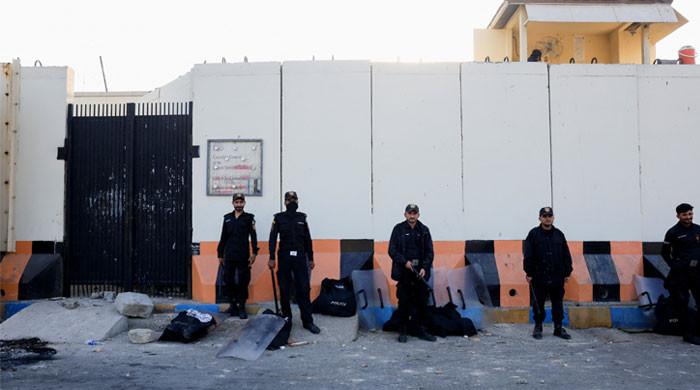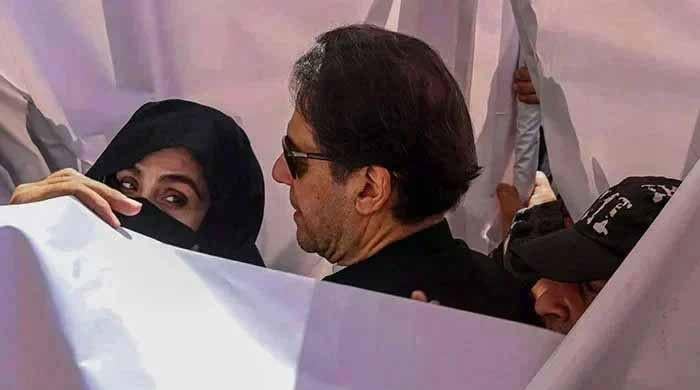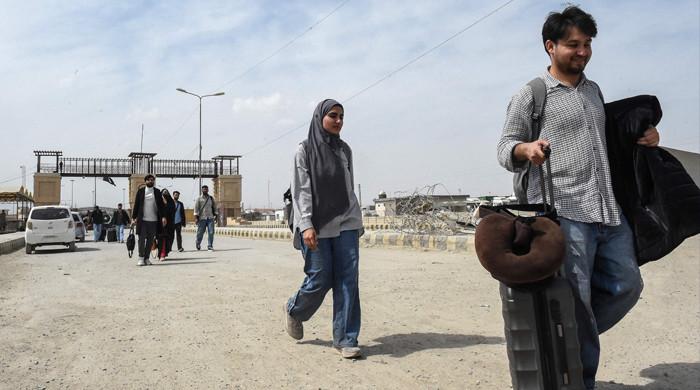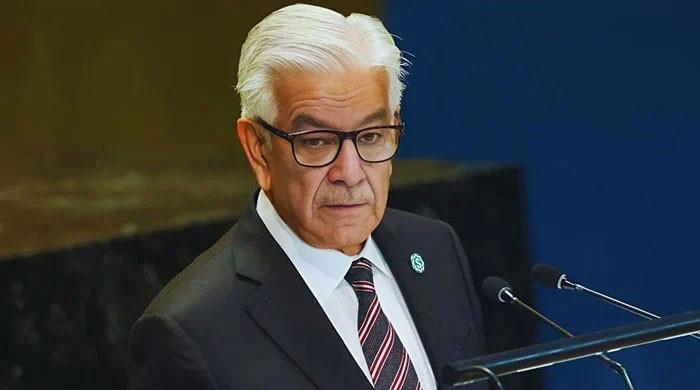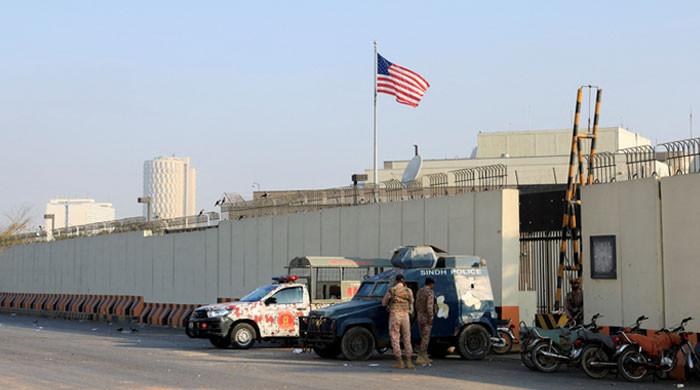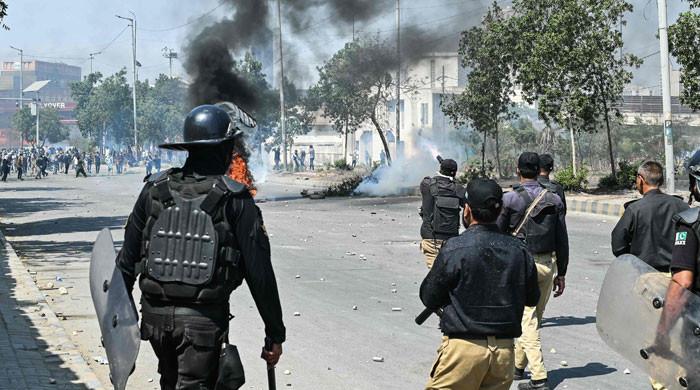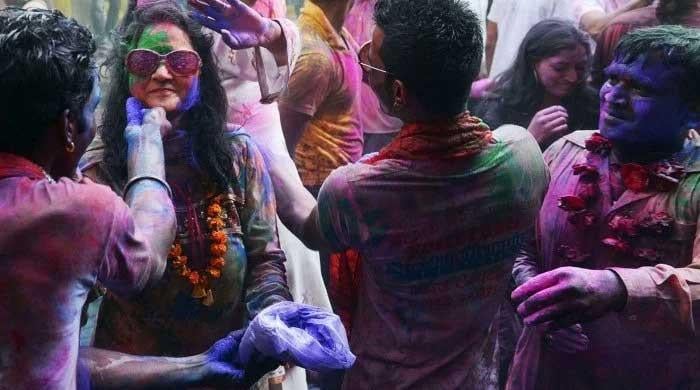Keamari gas leak death toll jumps to 14, more than 300 people affected
Police surgeon's office has submitted 16 samples to the chemical examiner, who will release a report on Wednesday
February 18, 2020
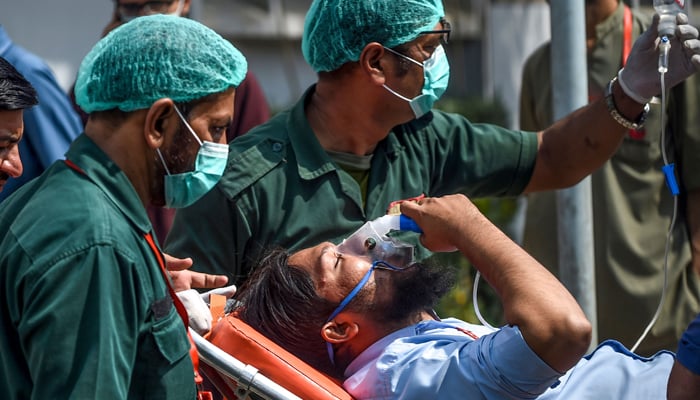
KARACHI: The death toll from a suspected gas leak here in the city's Keamari locality over the weekend has risen to 14, a spokesperson for the Sindh health department confirmed on Tuesday, adding that more than 300 people were affected.
The spokesperson noted that the 300 people who fell sick due to the suspected gas leak included women and children as well. The deceased people's families, on the other hand, did not permit for a post-mortem to be carried out either, the official added.
While the spokesperson said the lethal chemical had not been identified yet, The News had earlier today reported that authorities suspected it was hydrogen sulphide — a highly poisonous gas that is a byproduct of crude oil and also generated in sewerage system.
Over 100 people were moved to Karachi's public and private hospitals just last night over the concerning health disaster.
Breathing problems, burning feeling in eyes
Most people affected by the lethal gas were brought to Ziauddin Hospital and Karachi Port Trust (KPT) Hospital over the past 24 hours. Some others were shifted to Dr. Ruth K. M. Pfau Civil Hospital Karachi, Jinnah Postgraduate Medical Centre (JPMC), Kutiyana Memon Hospital, and Burhani Hospital.
Doctors explained that patients had complained of breathing problems, respiratory issues, stomach ache, burning sensation in eyes, and a tightness in the chest.
As of 3PM, Karachi's air quality relative to PM2.5 — fine particulate matter — was recorded at 194 AQI.
Over the past two days, the highest — or worst — was recorded at 4AM on Monday, at 296 AQI.
Separately, police surgeon Dr Qarar Abbasi told Geo News that the post-mortem of two deceased people — one identified and another unnamed one — had been completed at Civil Hospital Karachi.
Chemical examiner's report due tomorrow
A medical report of at least 14 people affected by the suspected gas leak was registered while samples were also obtained from them. Further, the police surgeon's office has submitted 16 samples to the chemical examiner.
The chemical examiner's report was expected to be released tomorrow (Wednesday).
On the other hand, the Civil Hospital's medico-legal officer has obtained samples from at least three people who were admitted to a private hospital in Keamari. Samples from the two deceased people — whose post-mortem was carried out earlier — were also obtained for chemical examination.
Panic grips port area
Residents of the area surrounding Karachi Port, including Keamari, protested against the rising death toll from the suspected toxic gas leakage, as well as the growing number of people affected by the health disaster.
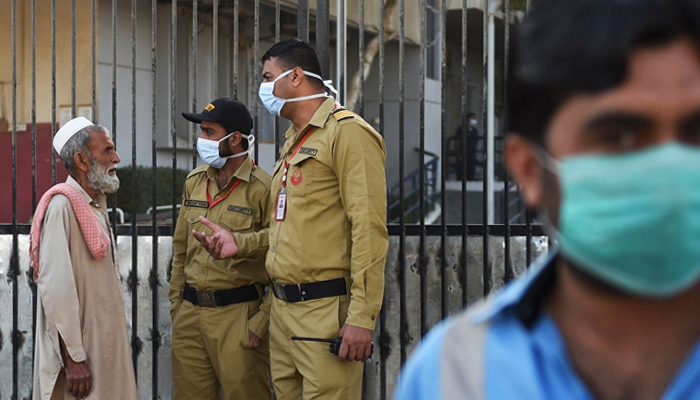
The demonstrators — including traders and the neighbourhood's business community — blocked various roads and held a sit-in on key routes near Jackson Market and nearby areas, bringing traffic to a standstill. Traffic police said vehicles were being rerouted to alternative streets.
Traders Association Vice Chairperson Muhammad Asif Khan said there had been no satisfactory efforts to ascertain the cause of and prevent further deaths from the alleged gas leak despite the incident being reported first some 48 hours ago.
One resident said people in Bhutta Village, near Shirin Jinnah Colony, felt heightened fear and panic prevailed among the dwellers.
People were seen wearing face masks, parents were not sending their children to the schools that remained open, and shop-owners were forced to close down their businesses and protest, while many others had decided to move their families away from the area.
Administrators of most public and private schools had announced that educational institutes — including those in Keamari, Machar Colony, City Railway Colony, Clifton, Tower area, and other coastal localities near the Karachi Port — would remain closed to avoid any unwanted incidents and keep children safe.
No need for mass evacuation?
On Monday, Sindh Environment Adviser Murtaza Wahab had told The News that the "investigation is inconclusive" but there was no need to conduct a mass evacuation.
"Hydrogen sulphide could be the probable cause of gas poisoning in Keamari area adjacent to Karachi port where some have unfortunately died and dozens were hospitalised on Sunday night," he had said.
“So far, our investigation is inconclusive but our teams are working on it and we have also sought professional assistance from a private firm to help in the investigation."
Karachi gas leakage: Death toll rises to eight
The adviser had added that their investigators were suspecting hydrogen sulphide poisoning in Keamari, adding that some "crude oil facilities" adjacent to the Railway Colony could be the probable source of gas poisoning.
The investigation was still underway and inconclusive at the moment, he had added. “We have summoned the officials of some of the companies who have installations in the area from where gas poisoning was reported.
SEPA, KPT tussle over jurisdiction
"We have also involved some private firms having expertise in such incidents," Wahab noted, adding that at the moment, there was no need for mass evacuation from the affected area.
Earlier, Chief Minister Murad Ali Shah had directed the provincial authorities to make necessary arrangements for the evacuation from the area.
Sindh government officials claimed that the provincial environmental watchdog, the Sindh Environmental Protection Agency (SEPA), was not allowed to monitor facilities at the Karachi Port — which is managed by the Karachi Port Trust (KPT) and Pakistan Navy — as these authorities believe they are only governed by the federal environmental laws.
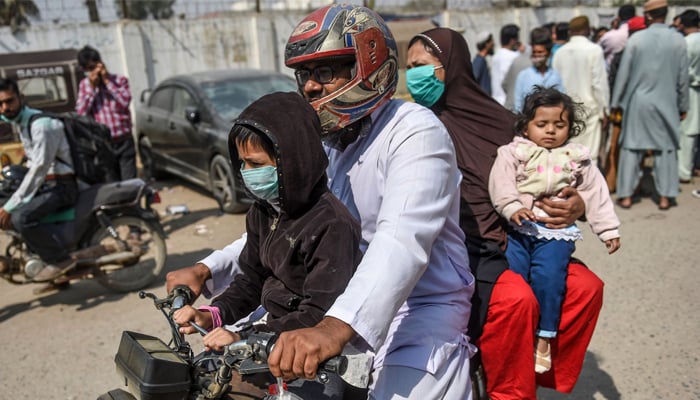
A team of SEPA investigators had rushed to Keamari after residents from Massan Road and Railway Colony complained of burning and irritation in eyes, along with breathing issues.
Sindh Health Secretary Zahid Abbassi, who visited Ziauddin Hospital last night, had announced that the provincial government would bear the expenses of all the people who were hospitalised due to gas inhalation and poisoning.
KPT says gas leak not from port, tankers
Earlier, a team of Pakistan Navy’s Nuclear, Biological and Chemical Defense (NBCD) also conducted an investigation into the possible source of toxic gas leakage in the port area; however, no details of the findings were made public.
In a news conference Chairman KPT Rear Admiral (retd) Jamil Akhtar said neither any oil vessel nor any facility at the port could be blamed for the poisonous gas leakage.
Also read: KPT chairperson says gas did not leak from port or tankers
“If there had been a leak from the port, then the first affectees would be the people working there. Here we are in front of you," he had said.
The rear admiral said he was not in a position to state the source or origin of the leak as the NBCD team had not provided any results yet.
Case filed over gas leak
Police on Monday registered an FIR No143/20 under sections 322, 284, and 337-A against unidentified persons. The case was registered at the Jackson Police Station on behalf of the state.
Confirming that the FIR had been filed, SHO Malik Adil said a total five people, including three women, had lost their lives while 63 others, including women and children, were affected due to the mysterious poisonous gas.
“We did not name anyone in the FIR as it is yet to become clear from where the poisonous gas spread as different departments are trying to ascertain it,” the officer explained.
Read more: FIR registered over gas leakage in Karachi's Keamari
The officer said that the postmortems of the deceased persons were not conducted; however, doctors have taken samples from the deceased persons for chemical examination to ascertain the cause of death.
Police said the body of a woman, Musarrat Yasmin, was sent to her hometown, Rawalpindi, for burial while others were laid to rest in separate graveyards in Karachi.
A young man, Muhammad Ahsan, who was the son of Counter-Terrorism Department (CTD) officer Omar Farooq, was also among the people killed. He was a resident of Docks Colony and was doing BCS at a private university in Karachi.






